Created by Actionable Intelligence for Social Policy (AISP) to support the essential and challenging work of exchanging, linking, and using data across government agencies. Cross-sector data sharing and integration has become more routine and commonplace, and for good reason.
Author Archives: Patti Schank
Hearing From All Families: Improving Family Outcome Survey Methodology

This session addressed strategies for improving survey methodology for collecting family outcome survey data that yield quality data for making informed program decisions for ALL families across dimensions of diversity.
State of the States: Status of IDEA Early Childhood Data Systems
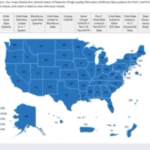
Conference: NCES STATS-DC Date: August 2022 Presenter: Nancy Perez, Mary Anketell, Emily Hackleman, Kathy Hebbeler This poster reports responses for 50 states, DC, and Puerto Rico on a survey of […]
Understanding Functional Skills: Background for the COS Process

This resource helps teams think about measuring a child’s use and integration of functional skills to participate in their everyday routines. This resource will help teams further their understanding of […]
Aligning a Child’s Functional Skills with the Breadth of the Three Child Outcomes

This resource supports high-quality Child Outcomes Summary (COS) ratings by helping teams connect their observations of children’s functional skills and behaviors with the three child outcomes. Effectively aligning functional skills […]
State of the States: Changes in IDEA Early Childhood Data Systems from 2013 to 2021
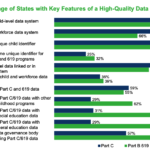
Conference: OSEP Leadership Conference Date: July 2022 Presenter: Nancy Perez, Betsy Mercier, and Kathy Hebbeler This poster reports responses for 50 states, DC, and Puerto Rico on changes in Part […]
Introducing: Identify Sorting Dials
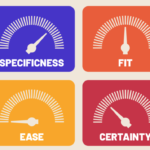
Part C and Part B 619 staff can use the dials to support decision-making around how to collect, analyze and present data about sub-groups.
More Than Numbers: A Guide Towards Diversity, Equity and Inclusion in Data Collection
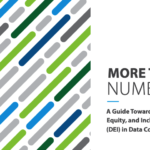
The guide is useful to staff who design program forms and surveys that involve the collection of disability, gender, or race/ethnicity information.
Principles for Advancing Equitable Data Practice
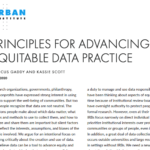
Part C and Part B 619 staff can use this resource to examine and strengthen agency and organization data practices to align more closely with equity principles.
The Consumer’s Guide to Data
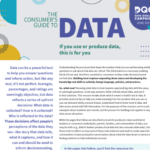
Part C and Part B 619 staff can use these tips to increase trust and clarity in publicly reported data and encourage appropriate use of data, particularly when data about historically underserved groups are presented.

